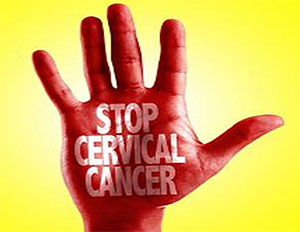Cervical cancer is the most common cause of cancer deaths worldwide, especially in the developing nations. In developed nations, the occurrence of this dangerous disease has decreased drastically, thanks to rigorous screening tests and timely follow-up action.
In India, on the other hand, cervical cancer is the cause of most cancer deaths. According to the Chennai Cancer Registry alone, the occurrence is 19.2 per lakh population.
Our country is in need of raising urgent and widespread awareness about cervical cancer, its screening and prevention.
It is important to understand that cervical cancer is a preventable disease with regular screening and follow-up care. It can be cured completely, if found early and treated properly.
What is cancer?
Cancer is an abnormal condition: cells in a specific part of the human body suddenly start growing, and get reproduced without any control. These highly harmful cells can attack and destroy healthy tissues including whole organs around the affected part.
What is cervical cancer?
The cervix is the mouth of the womb above the vagina and below the womb, as illustrated in the figure. Cervical cancer is the growth of highly harmful, abnormal cells on the mouth of the womb. If their uncontrollable growth is not detected early, and preventive measures are not taken promptly, it can lead to death.
What is the cause for cervical cancer?
A virus called Human Papilloma Virus (HPV) is the cause in almost all cases of this disease. The virus spreads through sexual contact with a person who has it already. It can disappear on its own in healthy people.
This infection can lead to less dangerous genital warts (skin growths on or around genitals or on anus). Unfortunately, in some other cases, it leads to cervical cancer.
It is therefore absolutely necessary for all women to undergo regular detection tests for this disease.
Screening for cervical cancer
Screening is the process of examining people for the presence of a disease. There are two detection tests available for cervical cancer: the Pap test and the HPV DNA test.
The Pap test
The Pap test (named after Papanicolaou, the doctor, who developed it) is an examination of sample cells taken from the cervix or vagina. It is done in order to examine whether the sample cells show any changes indicative of cancer or conditions that may lead to cancer.
The HPV DNA test
The HPV DNA test or simply HPV test is used to check for high-risk HPV infection in women. HPV infection around the genitals is a common occurrence. It can spread during sex.
The Pap test checks your cervix for abnormal cells that could turn into cervical cancer.
The HPV test checks your cervix for the virus (HPV) that can cause abnormal cells and cervical cancer.
Screening should begin at least by 30 years, with a Pap test done every 3 years till 65 years of age. It can be combined with HPV DNA test every 5 years.
Symptoms of cervical cancer
The following are the symptoms of cervical cancer:
- Abnormal vaginal bleeding such as bleeding between menstrual periods, after sex, or after menopause
- Pain in the lower abdomen or pelvis
- Pain during sex
- Vaginal discharge that isn’t normal
Even these symptoms aren’t always noticeable. There may be no symptoms at all in some cases until the illness has reached an advanced stage. That’s why periodical Pap test is necessary for all women.
 Prevention of cervical cancer
Prevention of cervical cancer
There is no single way of preventing cervical cancer. However, the following measures can help reduce the risk of this illness:
- Safer sex: As HPA is the culprit that causes this cancer through sexual contact, practicing safer sex with condoms can help prevent this disease.
- Regular cervical screening: Periodical screening of the cervix, every three years or five years depending on the age is absolutely necessary; it can help early detection of abnormal changes of cervical cells, and thereby cure this illness in its early precancerous stage itself.
- Cervical cancer vaccination: HPV vaccination significantly reduces the risk of cervical cancer, and preventss formation of genital warts too.
- Giving up smoking: People who give up smoking can get rid of the HPV infection better from their body than those who do not.
Please do consult your gynecologist to clarify all your doubts, and to get answers for all further questions.
Even after vaccination (if that was your choice), make sure you continue the cervical screening through Pap/HPV DNA tests as per guidelines.

